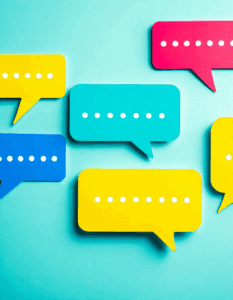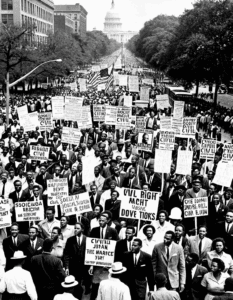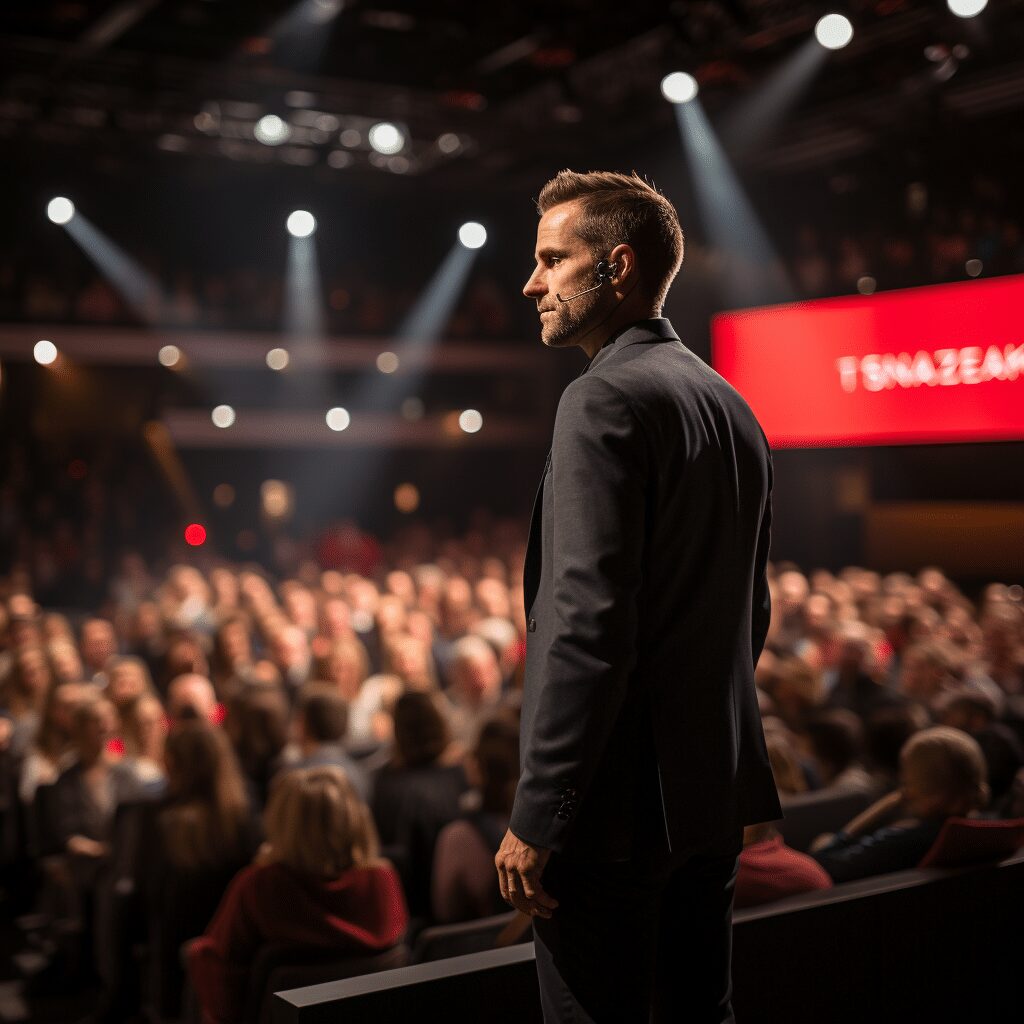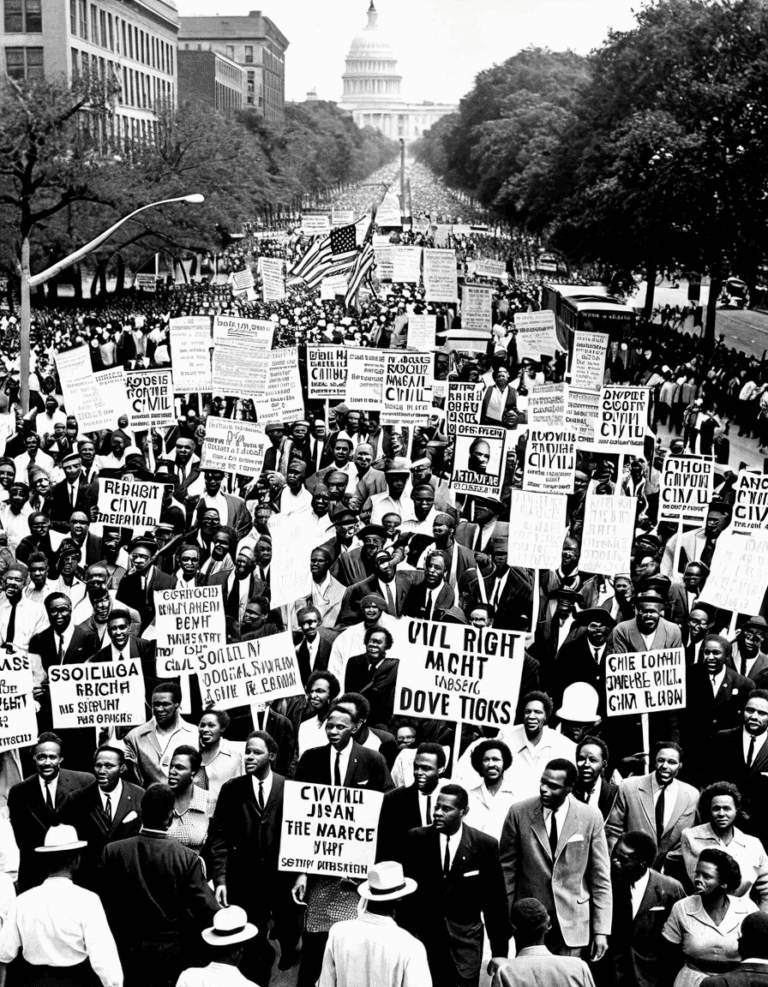The French Revolution, beginning in 1789, stands as a monumental turning point in history, one that sparked sweeping changes in society and governance. This era did more than just topple a monarchy; it dismantled the old feudal structures, igniting a passion for liberty and equality that resonated globally. Enlightenment thinkers like Voltaire and Rousseau stirred the pot, challenging the status quo with their bold ideas. Their philosophies lit a fire in the hearts of many, laying the groundwork for the modern democratic ideals we cherish today.
As we dive deeper into the French Revolution, we can explore its transformative impacts that continue to be felt in contemporary society.

Top 7 Transformative Impacts of the French Revolution on Society
1. The Rise of Republicanism
The revolution clearly showed a rejection of monarchy, setting the stage for the establishment of republican governments. An excellent illustration of this is the French Second Republic, which emerged in 1848. The principles that sprouted in this revolutionary period heavily influenced democratic movements in nations like the United States and across Latin America.
2. The Concept of Citizenship
3. The Birth of Secularism
One of the core changes prompted by the revolution was the essential separation of church and state. The Civil Constitution of the Clergy fundamentally changed how religion interacted with governance. This separation laid the foundation for secular policies that many governments today adopt, allowing people to practice their beliefs without interference.
4. Women’s Rights Movements
5. The Influence on Revolutionary Ideals Globally
6. The Mapping of National Identity
By embracing the principles of “Liberty, Equality, Fraternity,” the revolution fostered a sense of national identity that rippled across Europe. It can be seen in the cultural shifts that fueled unification movements in countries such as Germany and Italy, where revolutionary ideals played a crucial role.
7. The Birth of Nationalism
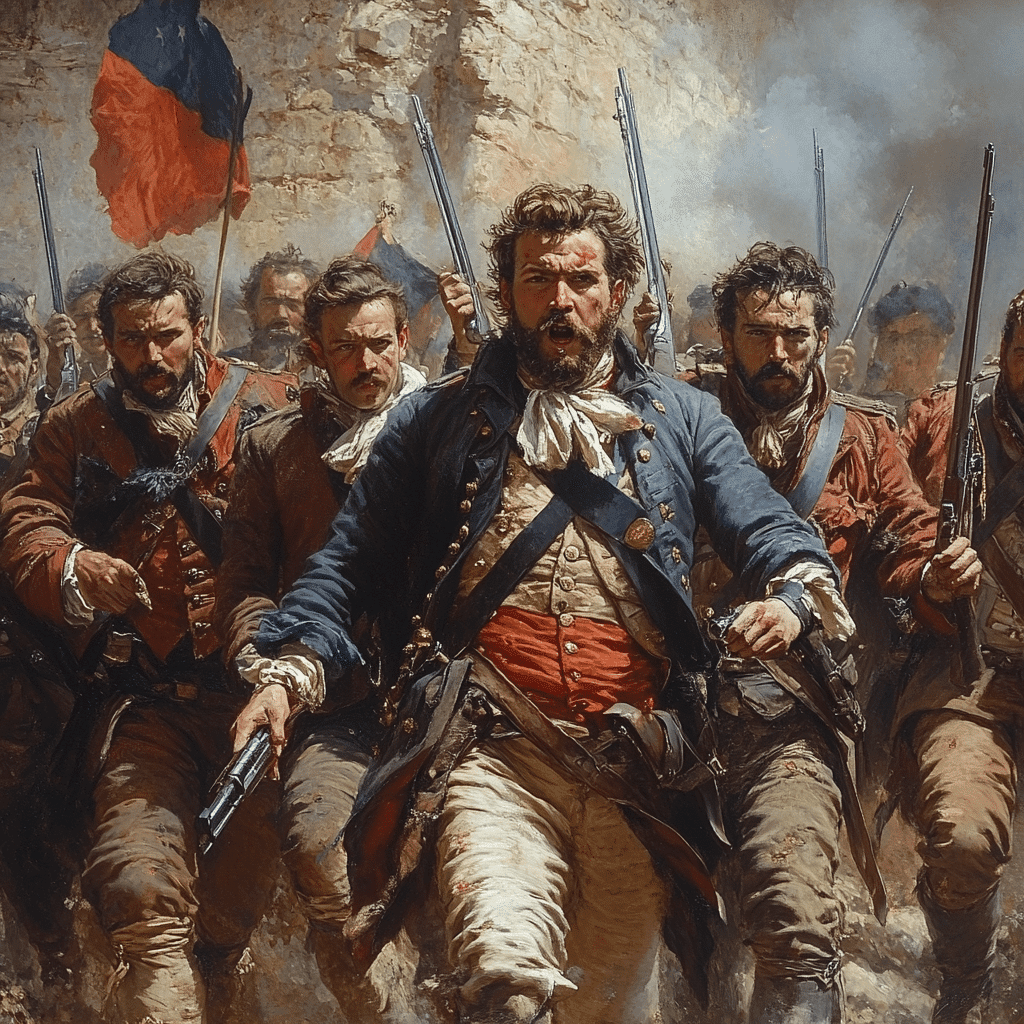
The Interplay of Greek Mythology and Revolutionary Ideals
Interestingly, the rhetoric and imagery of the French Revolution were steeped in references to Greek mythology. Revolutionary thinkers often drew parallels to ancient heroes, viewing themselves as modern-day Titans challenging the established order. They echoed figures like Prometheus, who defied the gods to bring enlightenment to humanity. This rich narrative highlighted themes of resilience, sacrifice, and a relentless pursuit of a better society, reminiscent of ancient struggles.
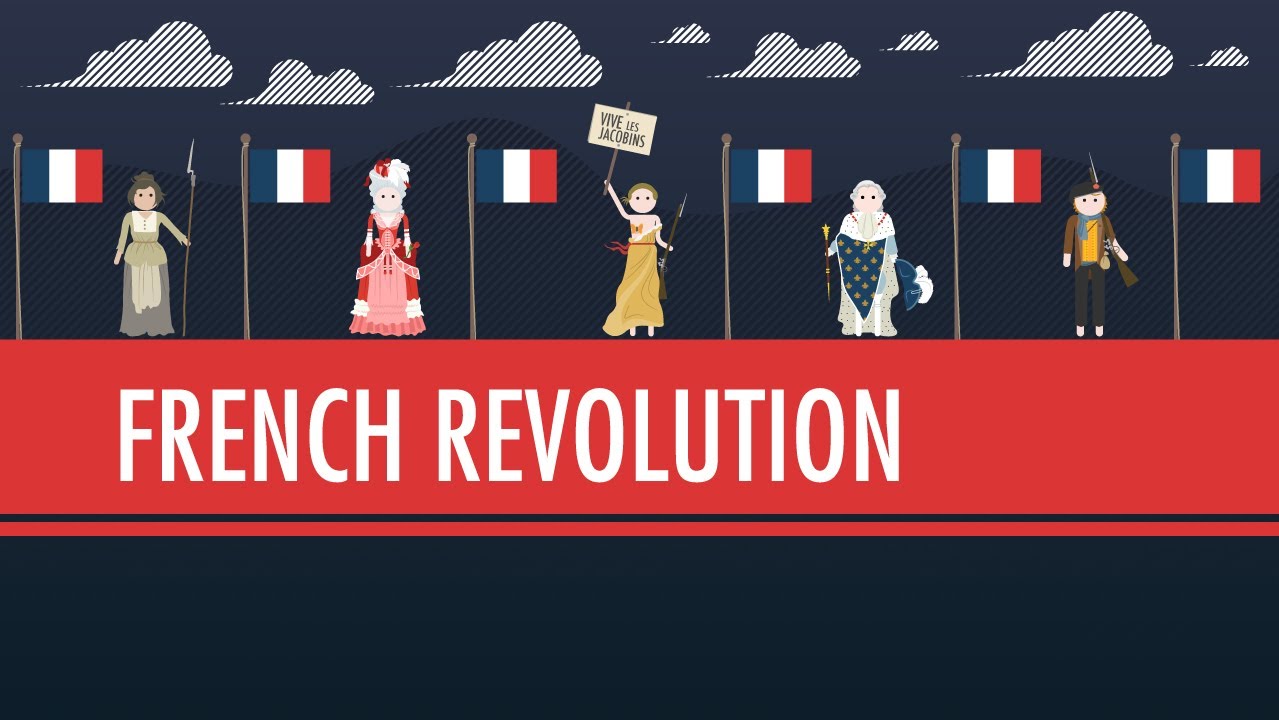
Legacy and Ongoing Impact of the French Revolution
The impact of the French Revolution extends beyond mere political changes; it laid the groundwork for societal norms that resonate today. The elements of democracy, secular governance, and civil rights, rooted in this period, fuel contemporary debates on various issues. Discussions surrounding customer relationship management within democratic governance often hark back to revolutionary doctrines of equality and inclusive citizenship.
In today’s world, we witness the French Revolution’s enduring legacy manifesting in movements advocating for social justice and rights around the globe. For example, immigration debates across the European Union often reflect the revolutionary ideals of equality and universal rights, reminding us of the importance of continued discourse on these topics.
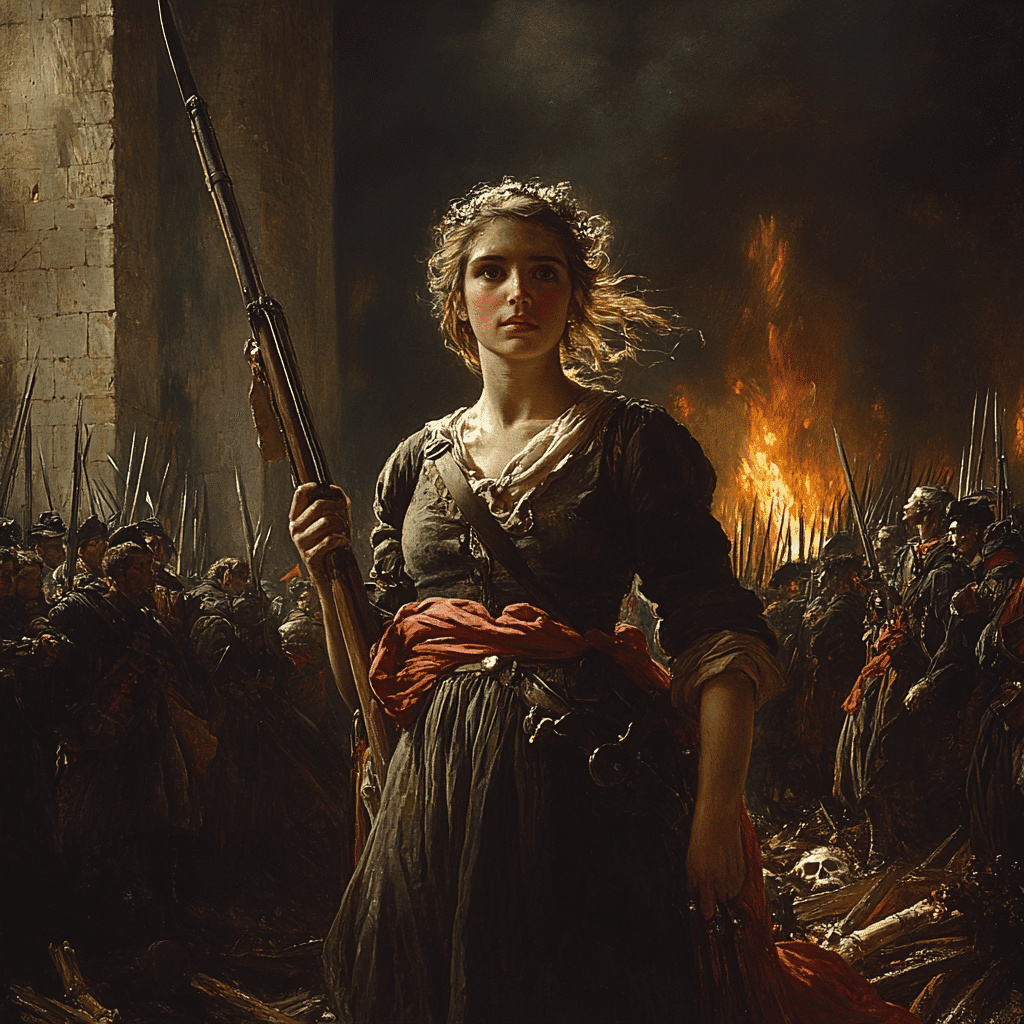
Reshaping Society Through Revolutionary Ideals
The French Revolution teaches us about the power of societal transformation. Its legacy urges modern societies to reflect continuously on their values, questioning established norms and championing social justice. Furthermore, by weaving together historical narratives like Greek mythology with modern ideals, we acknowledge the rich tapestry of creative inspiration influencing our understanding of liberty and equality today.
As we ponder the future, we must ask ourselves two crucial questions: How will the principles born from the French Revolution adapt and evolve? and What challenges lie ahead for our societies as we strive for a fairer world? The echoes of this pivotal moment in history continue to challenge us, reminding us that the fight for justice and equality is far from over.

French Revolution: A Spark of Change
The French Revolution was a whirlwind of ideas, feelings, and events that reshaped society in profound ways. Starting in 1789, this upheaval not only dismantled the monarchy but also stirred a fervor for liberty and equality. Imagine a world where people rebel against the established order, aiming for a brighter future! Fun fact: while it often gets overshadowed by the grandeur of other historical events, the French Revolution has inspired countless movements worldwide, getting people to think critically about their rights and roles in society.
Fascinating Tidbits about the French Revolution
Here’s a nugget of trivia: the storming of the Bastille, which many see as the revolution’s birth, happened on July 14, 1789. This event has become a symbol of freedom, celebrated every year as Bastille Day! Speaking of lasting impacts, the revolution’s principles influenced societies globally—think about how various governments consider these ideas even in today’s headlines, like the attention regarding Meghan Markle’s net worth and her advocacy for social issues. Who would’ve predicted that a modern royal would keep the spirit of equality in focus?
Alright, let’s not forget one of the revolution’s unique features: it created an entire new calendar! From the revolution’s onset, the French government introduced the Revolutionary Calendar, flipping the traditional system on its head. This calendar simplified months and laid out a more secular approach. Today, we have various types of real estate websites showcasing properties, but back then, revolutionaries shifted land ownership concepts dramatically. Property became a right of the citizen, as opposed to privileges only for the nobility.
Intriguing Historical Connections
While the French Revolution stirred politics, it also had connections to culture and entertainment! The arts burst with new energy, and actors even played pivotal roles, somewhat akin to the Cowboys vs Aliens cast, bringing diverse stories to the forefront. Figures like Antony Starr, known for his gripping performances, embody dramatic shifts in how entertainment reflects societal changes. Who can deny the echoes of revolution in today’s narratives?
Lastly, it’s worth mentioning that the French Revolution wasn’t just a single event; it was a series of movements that reconsidered personal liberties worldwide. You can even see parallels with modern educational institutions such as UC Santa Cruz, which pushes the boundaries of traditional learning. The lessons from how iconic figures like Snyder Hollenbaugh symbolize resilience can be traced back to those revolutionaries who dared to dream bigger than what was offered.
So, whether you’re digging into a Phd about the revolution or just browsing its effects, this period continues to ignite conversations. So much has changed, yet the core ideas of freedom and equality still resonate today, making it essential to reflect on. The French Revolution was not just an event; it was a pivotal chapter in the story of humanity.
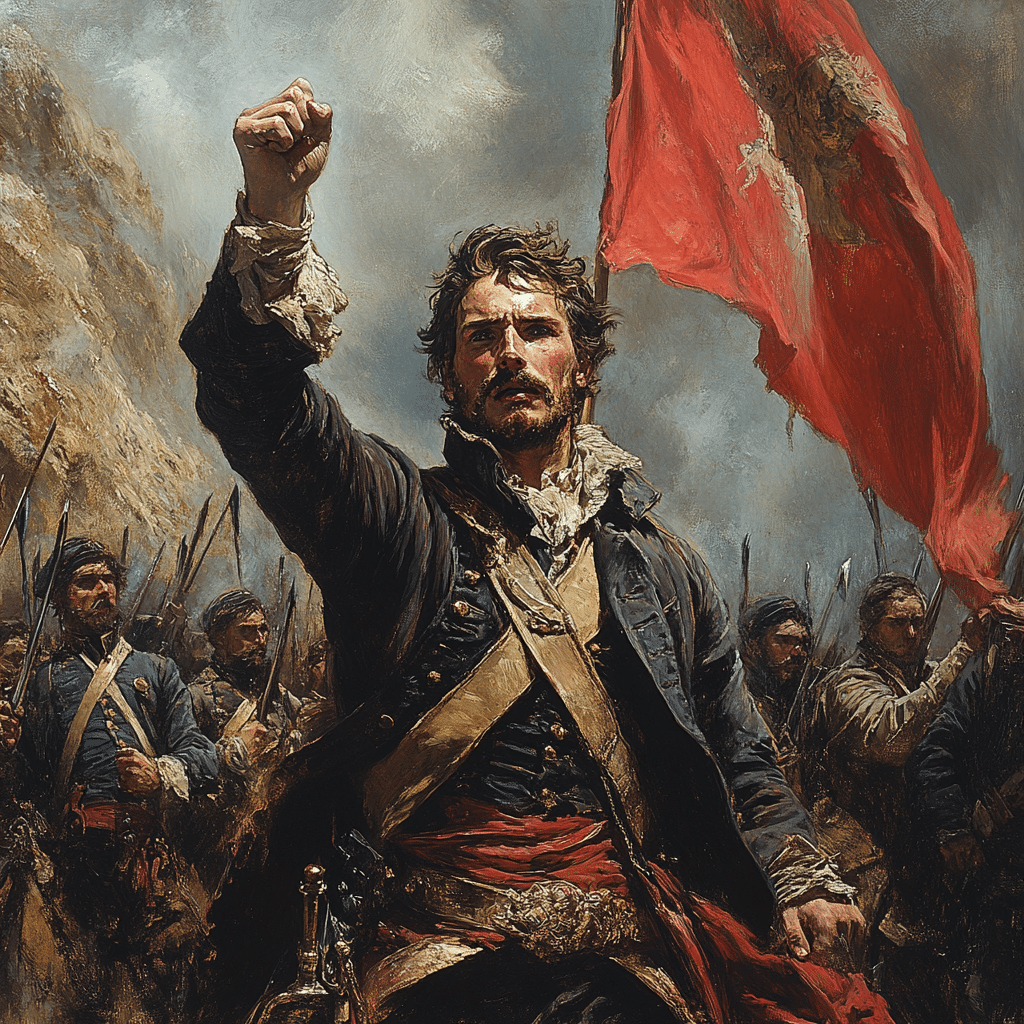
What was the French Revolution short summary?
The French Revolution was a major upheaval in France from 1789 to 1799 that aimed to change the way the government was run and the relationship between the rulers and the ruled. It focused on liberty, equality, and the end of the monarchy.
Why did the French Revolution happen?
The Revolution kicked off mainly because King Louis XVI was in deep financial trouble and failed to raise taxes effectively. This led to widespread discontent among the people, who protested against poor living conditions and inequality.
Who led the French Revolution in 1789?
Maximilien Robespierre was a leading figure in the Revolution. A lawyer known for his powerful speeches, he represented the radical Jacobins and pushed for reforms like universal male suffrage and the abolition of slavery.
Who won the French Revolution and how?
Napoleon Bonaparte emerged victorious from the Revolution by quelling opposition and establishing himself as the First Consul for life. He later declared himself Emperor in 1804, effectively wrapping up the revolutionary period.
Why was the French revolution so violent?
The French Revolution saw a lot of violence mainly due to political turmoil, fear of counter-revolution, and widespread anger towards the monarchy and its supporters, leading to events like the Reign of Terror.
What ended the French revolution?
The Revolution ended when Napoleon took control, declaring himself Emperor in 1804 and stabilizing France after years of chaos and uncertainty.
What ultimately caused the French Revolution?
The Revolution was sparked by political, social, and economic issues, particularly the struggles of ordinary folks against high taxes, food scarcity, and lack of rights, alongside the influence of Enlightenment ideas.
What happened to the French royal family?
The French royal family faced a grim fate; King Louis XVI and Marie Antoinette were executed by guillotine, while other royals fled or were imprisoned during the Revolution.
When was slavery finally abolished in France?
Slavery was finally abolished in France in 1848, long after the Revolution brought initial hopes for freedom and equality.
What happened to France after Napoleon?
After Napoleon, France underwent a series of political changes, including a return to monarchy, the establishment of the Second Republic, and eventually the rise of the Second Empire under Napoleon III.
Why did the United States aid the French?
The United States aided France during the Revolution as a means to weaken British power, seeing a chance to support an ally against a common enemy and promote democracy.
Why were they called Jacobins?
The Jacobins were named after the Jacobin Club, where activists and leaders gathered to discuss revolutionary ideas. They were known for their radical approaches and commitment to social justice.
What solved the French Revolution?
The French Revolution was solved by Napoleon’s rise to power, who centralized authority and restored order after years of chaos, bringing an end to the revolutionary government.
What happened to Versailles after the French Revolution?
After the Revolution, the Palace of Versailles lost its royal status and was often used symbolically and practically for various national purposes, reflecting the change in power dynamics.
How did the French Revolution divide America?
The French Revolution created a divide in America as it spurred debates between Federalists and Democratic-Republicans, polarizing opinions on liberty versus order and whether to support France or maintain ties with Britain.
What is the French revolution’s very short answer?
In very short form, the French Revolution was a time of major change in France where the monarchy fell, and power shifted toward the people and their rights.
What is French Revolution in short form?
The French Revolution, in short, was a social and political upheaval in France that led to the fall of the monarchy and the rise of democratic ideals, lasting from 1789 to 1799.
What was the main aim of the French revolution summary?
The main aim of the French Revolution was to establish a fair government based on the principles of liberty, equality, and fraternity, overthrowing an oppressive monarchy and promoting democratic rights for the people.
What caused the French Revolution short term?
Short-term causes of the French Revolution included financial crisis, food shortages, and widespread discontent with the royal government, all fueled by Enlightenment ideas pushing for reform and change.




